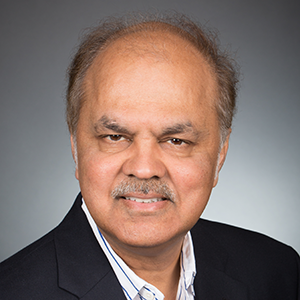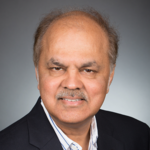
13 Aug Interview with Atul Sharan, Co-founder and CEO, CellMax Life

In 2012, as an Entrepreneur in Residence at a leading Silicon Valley Venture Firm, Artiman Ventures, Atul Sharan co-founded CellMax Life, applying semiconductor industry principles to a proprietary Circulating Tumor Cell (CTC) bio-mimetic CMx platform to develop affordable, clinically proven blood-tests for Early Cancer Detection and Treatment. He was motivated to start CellMax as two members of his family have been diagnosed with cancer – one of them was diagnosed with breast cancer within two weeks of receiving a conclusively negative mammogram. Atul is a veteran of the high-tech industry with experience as an engineer, serial entrepreneur, CEO and angel investor. Read his full bio.
Interview with Atul Sharan, Co-founder and CEO, CellMax Life
Q: CellMax has developed non-invasive blood tests based on Circulating tumor cells CTC. How do you see these tests being adopted clinically?
A: Survival rates are greater than 90% for cancers that are detected at an early stage. For most cancers the majority of patients are still diagnosed too late. We need convenient, affordable and accurate tests that can boost testing compliance and also have the sensitivity to detect cancer early.
It has long been known that CTCs are the earliest sign of tumor cells in the blood-stream and finding them with a routine blood test would be an ‘ideal” screening test for early-detection of cancer. The unsolved technology problem is one of finding the proverbial needle in a haystack – 1-10 CTCs among a billion normal cells. At CellMax, after many years of extensive research we have found the needle. ASCO announced the results from a prospective clinical study that showed that CellMax’s proprietary CTC CMx platform was 84-88% accurate for the detection of early colorectal cancer and even pre-cancer.
The CTC based tests are already clinically available ex-US and will be made available in the United States in 2019.
Q: A lot of investment is going into ctDNA technology. What role do you see CTCs playing?
A: Yes $3 billion dollars have been invested in the last 3 years alone in companies with DNA based technologies for early detection.
Recent cfDNA data presented at AACR and ASCO on colorectal and breast cancers suggest that DNA or methylation based approaches alone may not have the sensitivity required for early cancer detection. A multi-biomarker approach incorporating our ultra-sensitive circulating tumor cell technology can address this gap.
Once a patient has been diagnosed, our ultra-sensitive CTC blood test is a cost-effective option for monitoring for minimal residual disease, treatment effectiveness and disease recurrence.
Q: Do you have accredited labs in Asia and the US. How do you see differences in Asia and US?
A: Asia has several large population countries and there is significant need for an affordable early cancer detection. Locating in Asia allows us to offer fast turnaround for Asia but also the Middle-East.
In Asia tests are mostly self-pay. Any diagnostics – especially on the screening side – that relies on insurance re-imbursement to be affordable is bound to fail. Used to be that Asia would wait for the US to first adopt – however nothing could be further from reality now. One common complaint in Asia is that many companies in the US have no clue about the price-points that work in Asia where there are no insurance companies to underwrite un-neccesarily over-priced tests. CellMax strategy from the beginning has been to offer globally affordable early cancer detection tests.






